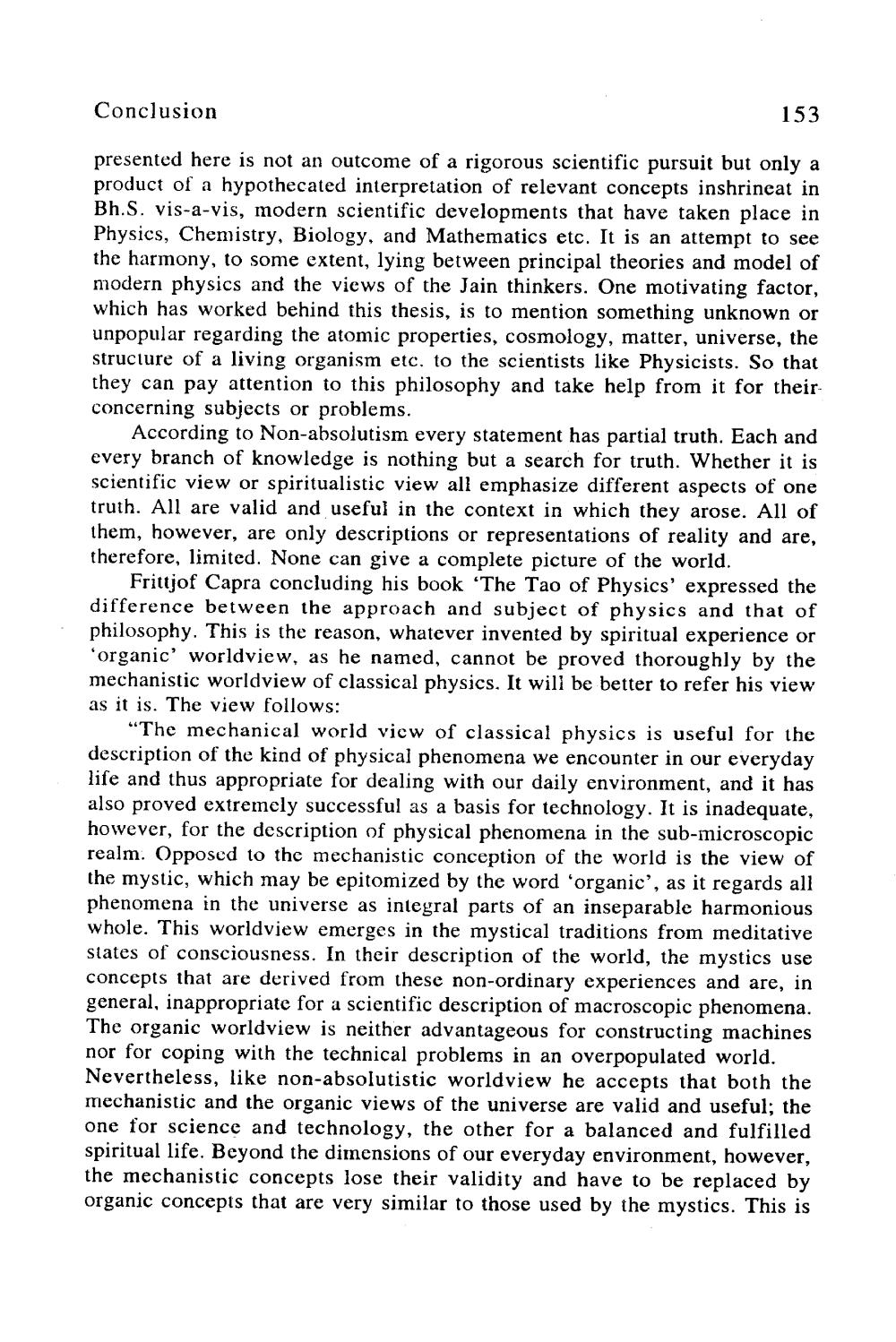________________
Conclusion
153
presented here is not an outcome of a rigorous scientific pursuit but only a product of a hypothecated interpretation of relevant concepts inshrineat in Bh.S. vis-a-vis, modern scientific developments that have taken place in Physics, Chemistry, Biology, and Mathematics etc. It is an attempt to see the harmony, to some extent, lying between principal theories and model of modern physics and the views of the Jain thinkers. One motivating factor, which has worked behind this thesis, is to mention something unknown or unpopular regarding the atomic properties, cosmology, matter, universe, the structure of a living organism etc. to the scientists like Physicists. So that they can pay attention to this philosophy and take help from it for their concerning subjects or problems.
According to Non-absolutism every statement has partial truth. Each and every branch of knowledge is nothing but a search for truth. Whether it is scientific view or spiritualistic view all emphasize different aspects of one truth. All are valid and useful in the context in which they arose. All of them, however, are only descriptions or representations of reality and are, therefore, limited. None can give a complete picture of the world.
Frittjof Capra concluding his book 'The Tao of Physics' expressed the difference between the approach and subject of physics and that of philosophy. This is the reason, whatever invented by spiritual experience or 'organic' worldview, as he named, cannot be proved thoroughly by the mechanistic worldview of classical physics. It will be better to refer his view as it is. The view follows:
"The mechanical world vicw of classical physics is useful for the description of the kind of physical phenomena we encounter in our everyday life and thus appropriate for dealing with our daily environment, and it has also proved extremely successful as a basis for technology. It is inadequate, however, for the description of physical phenomena in the sub-microscopic realm. Opposed to the mechanistic conception of the world is the view of the mystic, which may be epitomized by the word 'organic', as it regards all phenomena in the universe as integral parts of an inseparable harmonious whole. This worldview emerges in the mystical traditions from meditative states of consciousness. In their description of the world, the mystics use concepts that are derived from these non-ordinary experiences and are, in general, inappropriate for a scientific description of macroscopic phenomena. The organic worldview is neither advantageous for constructing machines nor for coping with the technical problems in an overpopulated world. Nevertheless, like non-absolutistic worldview he accepts that both the mechanistic and the organic views of the universe are valid and useful; the one for science and technology, the other for a balanced and fulfilled spiritual life. Beyond the dimensions of our everyday environment, however, the mechanistic concepts lose their validity and have to be replaced by organic concepts that are very similar to those used by the mystics. This is




